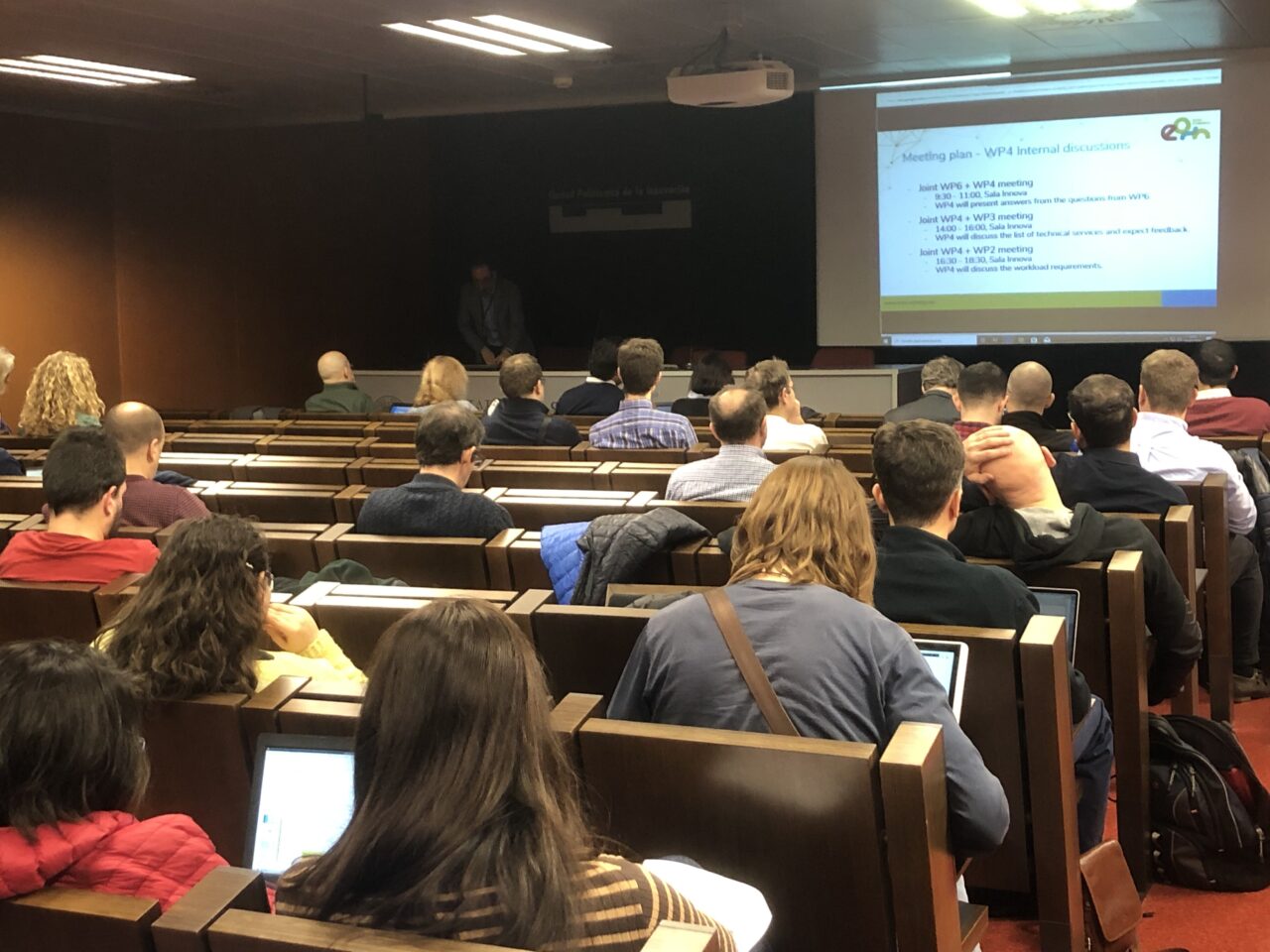By Matti Heikkurinen, EGI
…the performance of your research and innovation services. We are of course talking about policy work: ensuring that the developments and services fit the rules and regulations that govern the overall research and innovation processes.
Clickbait aside, policy work is typically seen as something similar to a healthy diet, good sleeping practices and sufficient exercise. It is one of the things that tends to trigger a response starting with an “Of course, but…”. I agree, but I’m busy right now, I have a deadline, someone I work with needs results immediately and so on.
A large part of the policy work during the Valencia meeting was focusing on the … “however” part of this “Of course, but…” reaction. We discussed how we could link policy engagement and support with all of the activities of the project. This includes the obvious synergies with dissemination and innovation management, but we determined that we shouldn’t stop there. The goal was set to make it easy, intuitive and (potentially) immediately useful for everyone in the project to raise policy issues. In principle, anything that makes the practical development and service provision unnecessarily complicated or limits the scopes they can be used in is a potential policy issue…
In practice, the project has created a contact point that initiates the basic policy workflows for
- Capturing,
- Categorising and
- Escalating
policy issues in a way that is transparent and provides a shared resource that also includes workarounds and solutions that allow expanding the use of research and innovation activities that EOSC Synergy supports. Sharing this information across the project is a big part of the “immediately useful” mentioned above.
The long-term, European policy formation itself is definitely useful, however, the “immediately” needs to be put into context. The timescales and required amounts of advance analysis for policy formation are – by necessity – considerable. Capturing the concrete policy cases arising from the practical innovation support work is a very useful component, but these specific issues need to be put in context (as examples) of the larger landscape before they can be addressed directly through policy development.
The project has launched its specific landscaping activity that forms the part of the overall policy activity of the family of the regional/thematic projects linked with EOSC Synergy. The project will complement the surveys performed by these sibling projects: EOSC-Secretariat, FAIRsFAIR, NI4OS, EOSC-Nordic, EOSC-Pillar and ExPaNDS focusing on analysis the situation in the target countries (Portugal, Spain, Czech Republic, Poland, Slovak Republic, United Kingdom, The Netherlands). The specific focus of the EOSC-synergy is transnational access – how the collaborations supported by the European infrastructures become truly pan-European, with approaches to policies that are so well aligned that the end user does not need to be concerned about the nationality of the resources and users in the collaboration. The main impact channel of this work will be through the EOSC working groups.
The details of the policy engagement processes will be published in an upcoming EOSC Synergy deliverable. For a quick snapshot of the issues the landscaping activity focuses on, please see the video interview of Ludek Matyska (online soon), the leader of the policy engagement activity of the project. And whether you’re working in the project, with it or are visiting the website the first time, the policy support team is interested in hearing about any policy issues you might have. Contact us now!
